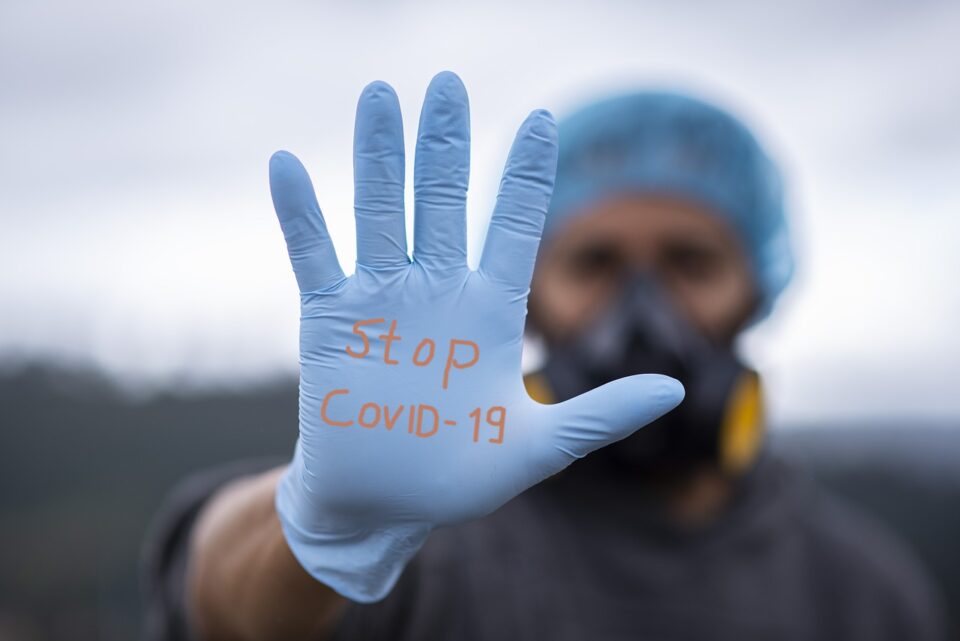Tips To Avoid Coronavirus When You Go Out In Public
Share0
Tips To Avoid Coronavirus When You Go Out In Public
Is there anything I can do to avoid the coronavirus? Much is unknown about the pathogen, except that it is a highly contagious respiratory virus that can be easily transmitted from person to person through breath, saliva, sneezing, etc. We also know that the medical public is racing to develop a vaccine, and this is discovering therapies that can help treat COVID-19, pneumonia caused by the coronavirus.
When it comes to protecting yourself and those around you, especially those with compromised immune systems and the elderly, the Centers for Disease Control and Prevention recommendations are better than magic solutions. If you are asymptomatic, you are currently unable to take a pill or injection to avoid contracting or spreading the coronavirus.
Table of Contents
#1. Keep wearing a face mask in public spaces
A few months ago, wearing a mask when in public was completely voluntary. This is still the case in many places, although the CDC is now promoting it as a voluntary health exercise in areas with high transmission rates and places where people cannot keep a social distance of six feet. The recommendation applies to masks and covers that you make or buy at home. Expect staff to wear masks when cities reopen. This is part of the CDC’s recommendation for the gradual reopening of schools, factories, and businesses. You’re probably more comfortable with that too.
 #2. Don’t make spending trips a source of entertaining
#2. Don’t make spending trips a source of entertaining
The purpose of protection and distancing is to prevent you from spreading the virus to others or acquiring it yourself. Yes, this can be boring, but the list of COVID-19 symptoms is long and terrifying for people who have it, even when they recover, which can take weeks.
#3. Use your knees, feet, elbows, and ankles instead
Social distancing can mean anything from staying home and not seeing friends and family in person to maintaining a boundary between you and others when you go out. The practice of staying three feet from that outside of your regular group extends to standing in line and walking around the grocery store (you can temporarily walk the bike path if you keep an eye on the traffic) and pick it up to take away.
#4. Look for the automatic choice
If the doors of a building you’re entering aren’t already open or have automatic sensors, look around before pulling a handle. Most modern buildings have accessibility buttons for opening doors for people with mobility problems. You can lightly touch it with your forearm, hip, or foot (some are quite low) and wait a few seconds for the doors to open.
 #5. Look where you put your mobile
#5. Look where you put your mobile
While we do have permission to use disinfectant wipes for phones, another smart idea is to avoid placing your device on questionable surfaces at first. Do you want to put your phone down, or can you keep it in a coat pocket or wallet? The less you can picture your phone on shared surfaces, the less you have to worry about it.
If you leave your phone on a shared surface, say if you pay to take it away, put down a napkin and place your phone on it.
#6. Put your recyclable cloth bags aside
Business policy increasingly excludes you from bringing shopping bags and other bags to supermarkets. If you want to reduce your ecological footmark, look for ways to recycle new bags from the store.
The stores I shop at continue to offer baskets and carts, and many have hired gloved workers to clean carts and baskets with disinfectant before people can shop. Others can spray their hands with disinfectant before entering or entering a store.
#7. Do not sort products with your plain hands
At a time when face masks are attractive, more common in stores, and shoppers can get a withering look at rummaging through lemons, here’s a little tip: don’t push the bear.
When sorting groceries, wear a glove or put your hand in a new, store-supplied bag. You can then use the outside like a glove to collect and examine the garlic and bananas you want so you don’t touch every object with your bare hands. It will make others more comfortable and will likely inspire them to follow your example.
#8. Whatever you do, touching is forbidden
The best way to avoid contracting the coronavirus is to limit your social circle. However, when cities reopen, it will be difficult not to be around other people. There is also the loneliness factor. After long weeks at home, it’s usual to want to see your family and friends.
When deciding to see other people, you know, resist the urge to hug each other, hit your elbows, or go anywhere within six feet. Air hug if necessary. Blow a kiss (minus the actual exhale). We have 13 intelligent and satisfied ones
#9. Wash your hands all time you get home
In addition to social distancing, thorough hand washing is one of the best defense mechanisms against acquiring the coronavirus. Rub your hands together well each time you return. Twenty seconds is the recommendation that may seem like an age, but it is easy to do if you wash slowly.
I count five long seconds (thousand) by lathering each hand between the fingers and up to the wrists, then I count another five seconds to thoroughly wash each hand and remove the soap (and dead germs). I also wash the soap dispenser pump and faucet handles frequently.
 #10. Stop using currency
#10. Stop using currency
Although the most significant risk of contracting the coronavirus is believed to be a person-to-person transmission, we know that joint surfaces can contain the virus. Play it safe by saving money for now and relying more on contactless payments. Some companies even refuse to use cash as a security measure for employees.
